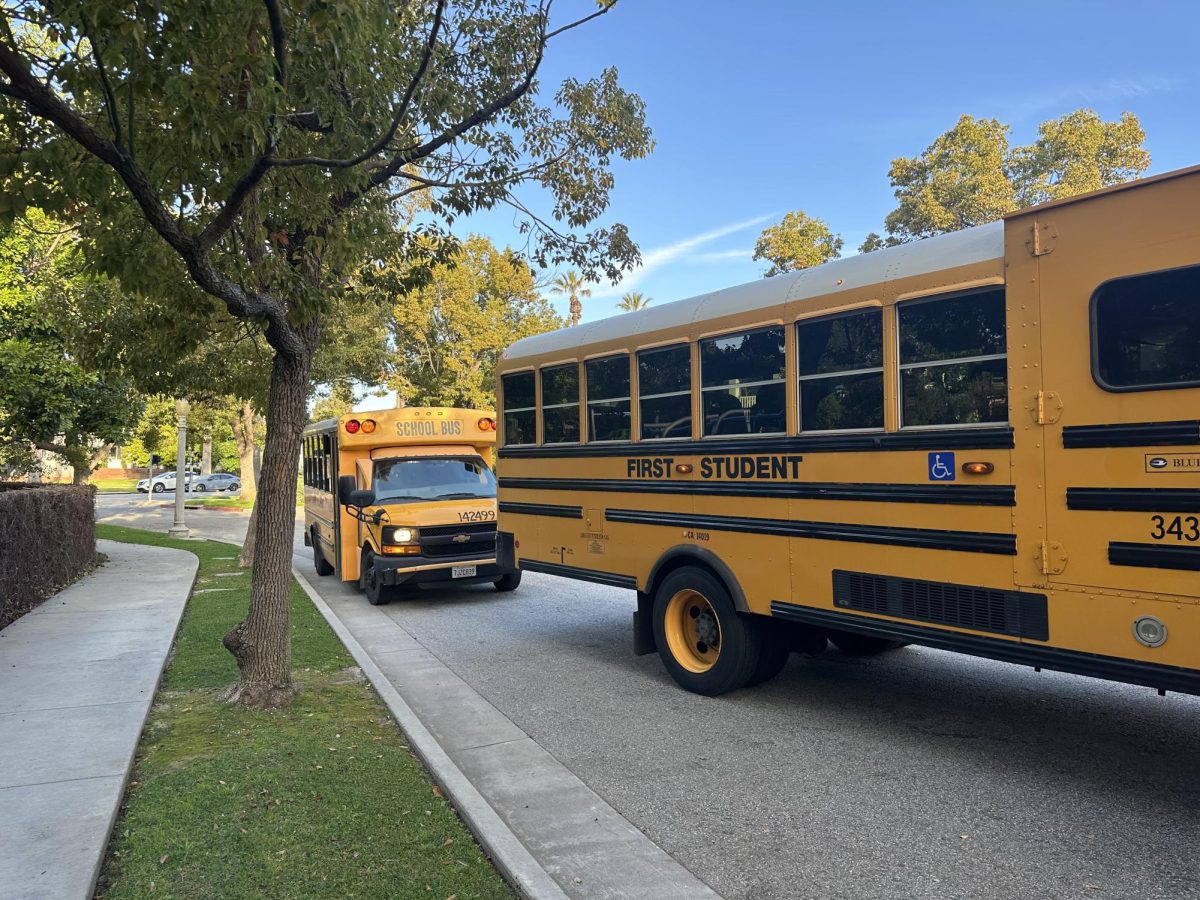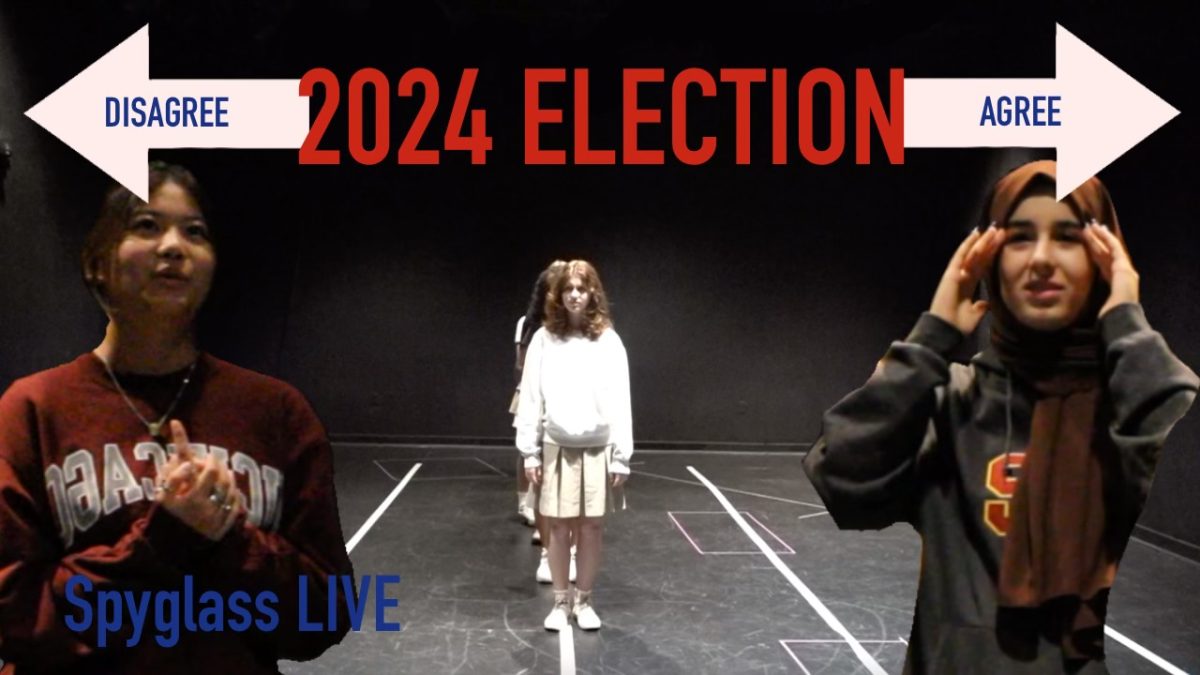Westridge Officially Announces Move Away from AP Program
Westridge announced that it would be moving away from the College Board’s Advanced Placement (AP) program and weighted GPAs
Students were abuzz on the morning of Friday, February 6. They asked about course registration, college admissions, and each other’s opinions. The night before, Westridge had announced that it would be moving away from the College Board’s Advanced Placement (AP) program and weighted GPAs. AP courses will be replaced by Advanced Courses.
An email from Elizabeth McGregor, Head of School, stated that the Advanced Courses were “designed to make rigor come alive in ways that promote deeper learning and the critical thinking skills and habits of mind that colleges and employers are looking for today and for the future.”
Advanced Courses will be phased in every year until the 2025-2026 school year.
Westridge will be replacing three AP courses with Advanced Courses for the 2022-2023 school year—AP European History, AP Spanish, and AP Latin, will be replaced by “Crisis and Courage in Global History,” “Identity, Borders, and Revolutions: Advanced Cultural Studies in Spanish,” and “Latin IV Virgil: From the Underworld to Olympus,” respectively. Additionally, an Advanced Course designed by the new Computer Science and Engineering department called “Full Stack Web Development” will be added to the curriculum.
Although some students responded positively to the change, others were concerned about the objectivity that can come from AP exams. “It’s not fair. Schools grade differently, but the thing about the AP test is that everyone gets the same test. You compare the actual kid, not the school,” said Heidi Repp ’24
Christina Sun ’24 was also doubtful about the changes. “I’m really skeptical if it’s going to put Westridge students at a disadvantage or not,” she said. “No public school has tried this, and very few private schools have tried it. All of them are pretty prestigious private schools too. It’s a little scary to be in the middle of it.”
Westridge administration insists that this shift will not affect college admissions. During a lunch discussion with Gary Baldwin, Director of Upper School, he said that the changes are “not going to have any impact on college admissions.”
Still, parents expressed their own concerns during a Town Meeting on Monday, February 7. “How can you ensure these advanced classes are viewed by the colleges as being as rigorous as an AP course?” one parent asked in the chat. “There are over 25,000 high schools in the US—how can the admissions officers compare students on an apples-to-apples basis? The concern is we are disadvantaging our students.” This specific question was not answered during the meeting but was later answered in a Q&A document that responded to questions.
“Colleges know us and trust us and have the highest possible appraisal of our program and our teachers as we prepare students for college exceptionally well,” reads the response. “In addition to the other benefits of this move, it will allow us to take better advantage of our reputation and history in the college process. In addition, college admissions officers are skilled at evaluating a vast range of transcripts and courses, including IB, AP, mastery transcript, and advanced courses. Our college counseling team is in regular communication with colleges updating them on our program. This year and throughout the introduction of Advanced Courses, the college counseling team will spend a great deal of educating colleges about the new program so they understand the level of rigor in the classes and have any questions answered.”
During the Town Meeting, a quote from Jarrid Whitney, Assistant Vice President for Student Affairs, Enrollment & Career Services at Caltech, was shared by the administration. “It doesn’t matter what program the school uses, as long as students take rigorous courses in math and science. AP scores are not indicative of success in college. They are indicative of success on the test.”
The administration assured attendees that, “[colleges] know our students. They know our school,” Lynn O’Grady, Director of College Counseling, said.
While both parents and students voiced concerns, many also expressed support and appreciation.
“Brava, Westridge, and thank you. I think this is a phenomenal decision and an essential move in the right direction,” wrote one parent in the chat during the Town Meeting.
Sarah Hammash ’24 supported the change as well. “I don’t mind it. I feel like they are taking away the stress of testing and focusing more on learning. It’s something I appreciate but I still want the credit. I think that as long as the recognition and credit is clear, it’s fine.”
Many teachers were also enthusiastic about the new opportunities that will arise with the Advanced Course program. Upper School Spanish teacher Victoria Garrett stated, “In my experience, our students generally have strong language skills when they begin the AP Spanish course, and they do not need a year-long course to prepare them for a standardized test. I am so excited that next year, advanced Spanish students will be untethered from test prep and will instead delve into major topics in greater depth than in their foundational courses…¡Ojalá que se animen! (Hopefully they will be encouraged!)”
Upper School Latin teacher Dr. Hilary Malspeis also showed support. “The problem is, with the AP syllabus, it just pushes us along at such a fast pace that we don’t have time to stop and absorb amazing parts. I am so excited by this. It’s my passion. Here at Westridge, teachers really shine, especially when they are teaching things that they are super passionate about,” she said.
Likewise, Ms. Melissa Kelley, Upper School History teacher, was also happy with the changes. “I am fully supportive of this decision, and I think Westridge is doing the right thing as a school. While I do enjoy teaching AP Euro, I find the curriculum very limiting,” she said.
Dr. Jim Holland, a former Upper School English teacher who is currently filling in for Dr. Jessica Bremmer, agreed that Westridge made the right move. “Changing to advanced courses rather than following the set AP curriculum will empower both students and teachers. Having a sense of ownership will motivate both students and teachers to exceed fixed standards set by the AP program. Students will be better prepared to succeed in college wherever they attend,” he said.
Mr. Baldwin emphasized the limitations that arose with AP courses. “[On an AP test] you’re not really learning anything, you are just regurgitating,” he stated during the lunch discussion. “That’s not education, that’s factory work. We can do better than that.”

Daria is a senior in her fourth year on Spyglass and third year as an editor. Outside of Spyglass, you can find her reading (typically about quantum physics),...

















![Dr. Zanita Kelly, Director of Lower and Middle School, pictured above, and the rest of Westridge Administration were instrumental to providing Westridge faculty and staff the support they needed after the Eaton fire. "[Teachers] are part of the community," said Dr. Kelly. "Just like our families and students."](https://westridgespyglass.org/wp-content/uploads/2025/03/dr.-kellyyy-1-e1748143600809.png)
















































